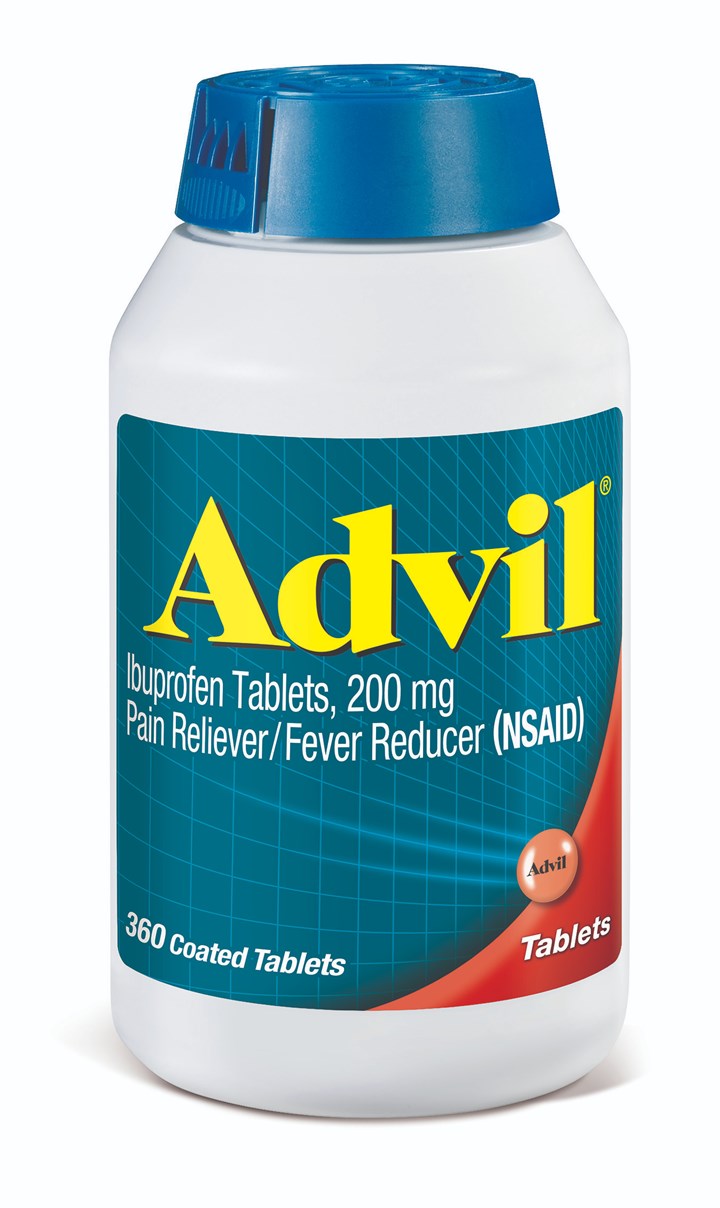OTC Medicine Bottles Made with Less Plastic
With new barrier technology, GSK Consumer Healthcare aims to have transitioned to more sustainable bottles for its Advil portfolio by 2022.
In what is reportedly the first-of-its-kind sustainable plastic technology initiative for over-the-counter (OTC) medicines, has been put in motion by the maker of Advil, GSK Consumer Healthcare, Warren, N.J. Using new barrier technology, the company is aiming to reduce the plastic in over 80 million bottles by 20%, resulting in a reduction of nearly 500,000 lbs of plastic in the environment. The transition is expected to be completed by 2022, for nearly all Advil portfolio bottles available in stores and online.
This barrier technology involves the use of a nucleating agent that is metered into the blow molding grade of HDPE during the manufacturing process, similar to the metering of the white colorant, according to GSK’s v.p. of sustainability Sarah McDonald.
Asked how the company is able to achieve the 20% material reduction while maintaining the same barrier protection properties, she noted, “The addition of the nucleating agent in combination with the accuracy of material distribution, achievable with compression blow forming, allows us to reduce material while maintaining the barrier properties.”

According to McDonald, the new material does have slightly different processing characteristics, but is can be run on existing extrusion, injection and compression blow molding equipment.
The new sustainability goal set by Advil is part of GSK's ambition for all consumer product packaging to be recyclable or reusable, including eliminating all problematic and unnecessary plastics when permitted, while ensuring the quality, safety and efficacy of its products, by 2025. Said McDonald, "As a world leader in pain relief, we at GSK are proud to transition Advil to a more environmentally friendly packaging, further supporting GSK's commitment to sustainability. With the new technology available to us, we saw this as an opportunity to invest in the future of our brands and sustainability goals. Advil's switch to 20% less plastic is a first in the OTC category, and kicks off a series of plastic reduction initiatives across the product portfolio at GSK."
The focus on plastics and packaging is informed by the leading requirements set by the Ellen MacArthur Foundation. GSK joined the Ellen MacArthur Network in 2020 and is committed to playing its part in mobilizing a shift towards a circular economy for plastics.
As part of their 2025 sustainability commitment, GSK also joined the Action for Sustainable Derivatives (ASD), which aims to increase the transparency and traceability of palm oil derivatives supply chains. In collaboration with ASD, GSK introduced the Sustainable Palm Index (SPI), an evaluation scorecard for suppliers of palm oil and palm kernel oil derivatives, intended to support procurement decisions.
Further, last year GSK announced ambitious new environmental sustainability goals in both climate and nature, aiming to have a net zero impact on climate and a net positive impact on nature by 2030.
Related Content
-
How to Optimize Injection Molding of PHA and PHA/PLA Blends
Here are processing guidelines aimed at both getting the PHA resin into the process without degrading it, and reducing residence time at melt temperatures.
-
Best Methods of Molding Undercuts
Producing plastics parts with undercuts presents distinct challenges for molders.
-
‘Monomaterial’ Trend in Packaging and Beyond Will Only Thrive
In terms of sustainability measures, monomaterial structures are already making good headway and will evolve even further.















